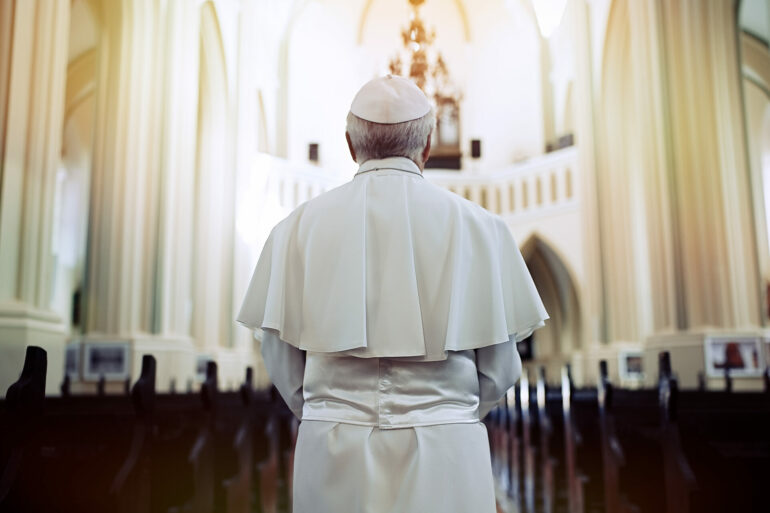Pope Francis authorised Vatican officials to bug a British investment broker who allegedly defrauded the church out of a £60m property deal, according to reports in The Times.
According to leaked documents seen by The Times, the Pope authorised officials from the Vatican’s Office of the Promoter of Justice (OPJ) to target Raffaele Mincione without seeking approval from a British judge.
The scandal centres on a massive Vatican investment in a former Harrod’s warehouse in London, which was set to be converted into luxury apartments.
Mincione is one of 10 people, including a cardinal, embroiled in the controversy, which first came to light in 2014. He has repeatedly denied any wrongdoing.
The Vatican’s case is in relation to the Vatican over the purchase of 60 Sloane Avenue, a former Harrods storage building in Chelsea.
The building had been earmarked for development into luxury apartments with planning permission granted in 2016.
But two years later Vatican officials bought the building outright from Mincione’s Luxembourg-based company claiming to have lost millions on the deal.
Since then has pursued those involved through the courts and sold the property to a US investment fund.
The case itself has been plagued with difficulties, and an earlier Vatican tribunal agreed the defendants’ rights had been “completely violated” and ordered prosecutors to drop the charges, which they initially did, before re-charging them.
In the UK, OPJ investigators also tried to freeze bank accounts belonging to one of the alleged co-conspirators, which led a British judge to examine the evidence.
Now hundreds of leaked documents have surfaced revealing the role of the Pope in authorising the secret wiretaps.
Last year Pope Francis allegedly ordered “the adoption of technological tools suitable for intercepting fixed and mobile devices, as well as any other communication, including electronic ones,” according to the leaked documents. “These powers may be exercised against subjects whose communication activities are considered useful for carrying out the investigations.”
Weeks later, Mincione had phones and computers seized by Vatican officials and Italian police at a hotel during a trip to Rome. The financier’s Italian lawyer also allege that he was put under surveillance.
Due to the alleged impropriety of the Vatican’s actions, Mincione’s lawyers have written to Home Office urging them not to cooperate with the investigation.
Mincione and his co-defendants have consistently denied any impropriety and insist that the sale was a good deal for the church.
He has repeatedly asserted that he acted in good faith in all his dealings with the Holy See and has brought legal claims against the Vatican’s actions against him.




